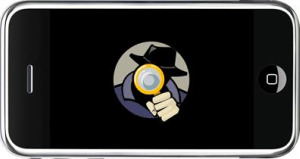 New software turns the iPhone into a powerful eavesdropping tool, but only for those who are willing to jailbreak the phone and wade into murky legal territory.
New software turns the iPhone into a powerful eavesdropping tool, but only for those who are willing to jailbreak the phone and wade into murky legal territory.
Seychelles-based FlexiSpy, a purveyor of snooping applications for mobile devices, has released new software that lets you remotely turn on an iPhone’s microphone and listen in on the surroundings. FlexiSpy likens this to an audio bug — the kind used by the FBI to keep tabs on mobsters.
The remote recording function is being installed on all new iPhones running FlexiSpy, which only works when the phone is jailbroken, meaning it is free from limitations imposed by Apple and AT&T.
This is not the first development in spy technology for mobile devices. FlexiSpy offers a whole range of tools for cell phones, including software that turns the tables by hiding mobile communications from snoopers. Another company, Mobile Spy, offers a similar line of products, but so far doesn’t have the audio bug functionality of Flexispy’s iPhone software.
Concern over cell phone spy tools is growing. It’s not hard to find stories about people discovering that their phone activities are being logged. Last week, Blackberry users in the United Arab Emirates canceled service en masse with provider Etisalat when they found out the government was installing spy software as part of a routine service update.
Flexispy markets its products as a way to “supervise and protect teenagers and employees, and to investigate infidelity and criminal activity.” These activities are in many cases illegal unless users know they can be spied upon, which usually defeats the purpose.
To clarify, I spoke with Tom Clyde and Scott Dailard, attorneys for Washington, D.C.-based Dow Lohnes. Their firm represents media companies and often provides newsroom counseling on questionable journalistic practices such as hidden microphones.
Clyde said a program like FlexiSpy would be difficult to use within the boundaries of the law. Federal wiretapping statutes say that recording a conversation in the United States requires the consent of at least one party. That means it’s illegal to plant FlexiSpy on your spouse’s iPhone and record his or her affair with another lover.
But how is this different than hiring a private investigator? Simple: Even P.I.s aren’t allowed to trespass, and they certainly can’t tap phone lines. A phone application has access to areas where an investigator cannot go.
Some states, such as California and Connecticut, require consent of both recorded parties, so bugging the phone wouldn’t necessarily be allowed even if the spouse knew about it. The same logic applies when spying on one’s children, Clyde said. One perfectly legal scenario would be installation on company phones, provided the employee is told about the spy software with clear documentation. Law enforcement could also use the software after getting court approval.
Despite the ways in which FlexiSpy can be used illegally, Clyde said the law is currently adequate for addressing legal disputes, should they arise from using mobile spy tools. So far, there hasn’t been much of an uproar.
“To me, this is just another example of where technology is moving quickly enough that it’s colliding with the law, but it’s staying under the radar to a degree where we’re not seeing a lot of civil lawsuits and criminal lawsuits,” he said.
If demand for tools from Flexispy and Mobile Spy grows, that could change.
VentureBeat's mission is to be a digital town square for technical decision-makers to gain knowledge about transformative enterprise technology and transact. Learn More
